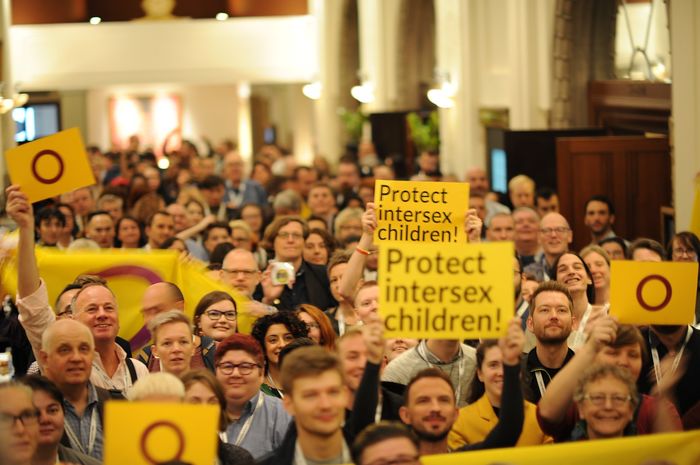Men and the Human Papillomavirus
In cervical cancer awareness month, Yan-Yi Lee delves into the topic of HPV, exploring why heterosexual men in particular may be less aware of the risks and consequences.

Pap smears. Vaccines. Genital wart check-ups. January is Cervical Cancer Awareness Month, and adult females insured by the NHS – those who have never had a cervical screening under the system– will receive a postal invitation to do so in due course. The worrying increase of cervical cancer rates worldwide is a firm plea for the public to educate itself on the primary culprit behind it all – the Human Papillomavirus (HPV).
“Despite it spreading equally easily and causing cancer in both males and females, among men there tends to be surprisingly low awareness of what HPV even is”
HPV comes in more than 170 forms (with certain subtypes being more ‘deadly’ than others) and typically transmits through sexual activity. Despite it spreading equally easily and causing cancer in both males and females, there tends to be surprisingly low awareness of what HPV is among men. It is unbelievable to me that the term doesn’t even ring a bell among the highly educated male friends in my social circle, with some even confusing it with the Human Immunodeficiency Virus (HIV) or the Herpes Simplex Virus (HSV). Findings in recent scientific studies appear to align with my anecdotal observations. In the previous decade, data collected in one American university revealed that despite rising death rates in HPV-related cancer among men, less than 30% of males were vaccinated. Another report painted a similar picture: the awareness of HPV and the importance of its vaccination dropped by a whopping 10% among men between 2013 and 2018. Sexuality also appeared to play a role in HPV awareness, with the LGBTQ+ community appearing to be more conscious of the threat posed by HPV. It was found that men who have sex with men tend to be more aware of HPV and are more willing to get vaccinated for it in comparison with heterosexual men.
Reasons that account for this striking gender gap in HPV awareness are multifaceted, and the first concerns how HPV testing works. Designing a technically robust HPV test for heterosexual men is challenging; there are currently are no approved tests for penile HPV, and throat swabs appear to be unreliable in capturing the virus as well. Although urine-based tests have been tested scientifically for women, the reliability of urine tests for testing HPV has yet to be discussed in more detail for men. Further, for bisexual and gay males, anal pap tests are only given if especially requested. In the absence of reliable tests, men commonly do not know they even carry the virus (let alone know how dangerous their HPV strains are) and potentially spread it to their partners.
The second explanation for this pertains to the consequences. As HPV is the primary cause of the fourth most common cancer for females (and because detection is possible and can result in highly effective treatment), women tend to be more conscientious of HPV and the importance of tracking it in their bodies. Similarly, for gay and bisexual men and their attitudes towards anal cancer. On the other hand, the rate of penile cancer is a mere 1 to 100,000 for heterosexual men, so the stakes are lower and hence less awareness.
“A careless wild night may not only imply other widely-known sexually transmitted infections; it may also lead to an agonising cancer in older age”
Thus, what could the male population do to slow down the spread of HPV? Prevention measures are not hard to guess: using protection during sexual intercourse and getting all three doses of the HPV vaccine. In the UK, both girls and boys are vaccinated early on at ages 12-13; and contrary to popular belief, HPV vaccines can still be administered in adulthood. The vaccine would most likely be beneficial even if an individual has HPV, although this would depend on the strains of HPV currently existing in the individual’s system. In any case, a consultation with a health professional beforehand is always the best idea.
It is commonly understood that a careless wild night may imply unwanted pregnancy and other widely-known sexually transmitted infections, but what many of us fails to see is the same carelessness may lead to agonising cancer in older age – particularly for women and non-heterosexual men. These cancerous infections often happen in one-night-stands, and it simply isn’t worth getting cancer for a person whose name you won’t even remember after some ephemeral dopamine and serotonin. Both genders have the responsibility and the power to protect themselves and their partners from HPV-related cancers. The fact that there isn’t as much reason to worry about HPV among heterosexual men should not excuse them from the responsibility to build awareness of it, and it is high time to find out how best to do so on a broader scale.
 Music / The pipes are calling: the life of a Cambridge Organ Scholar25 April 2025
Music / The pipes are calling: the life of a Cambridge Organ Scholar25 April 2025 News / Candidates clash over Chancellorship25 April 2025
News / Candidates clash over Chancellorship25 April 2025 Interviews / Dr Ally Louks on going viral for all the wrong reasons25 April 2025
Interviews / Dr Ally Louks on going viral for all the wrong reasons25 April 2025 Comment / Cambridge builds up the housing crisis25 April 2025
Comment / Cambridge builds up the housing crisis25 April 2025 News / Cambridge professor paid over $1 million for FBI intel since 199125 April 2025
News / Cambridge professor paid over $1 million for FBI intel since 199125 April 2025






